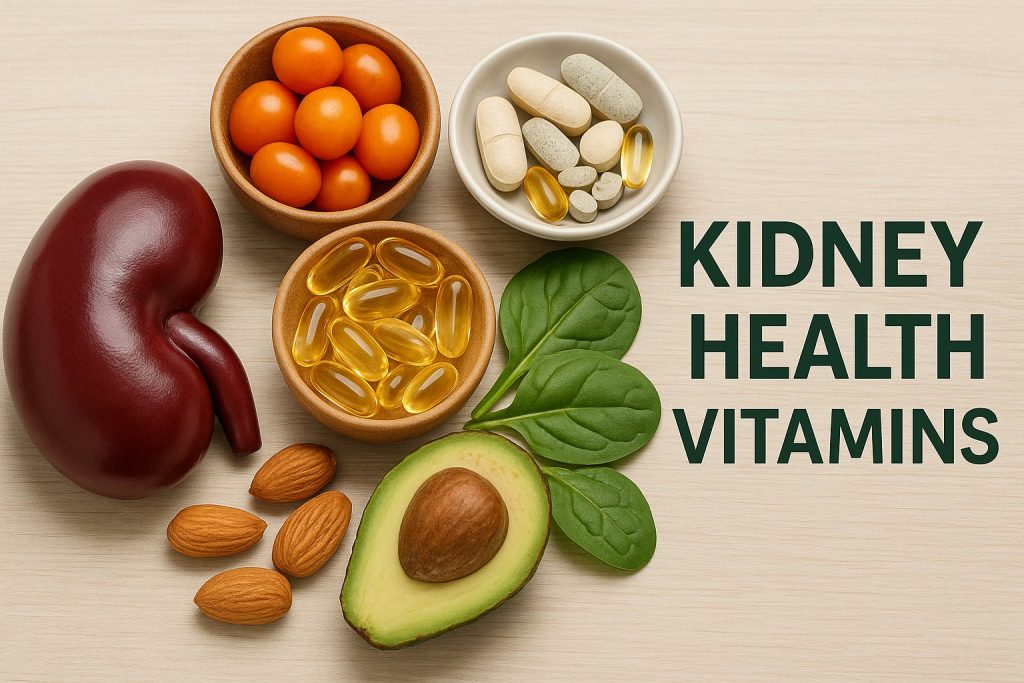Best Vitamins to Support and Possibly Reverse Kidney Disease

Why Kidney Health Matters
The kidneys play a vital role in filtering waste, regulating fluid balance, and maintaining electrolyte and blood pressure stability. When kidney function declines—whether due to diabetes, hypertension, or other causes—it can lead to chronic kidney disease (CKD), a progressive condition affecting millions worldwide.
In 2025, growing evidence supports the role of specific vitamins and nutrients in slowing kidney damage, reducing inflammation, and in some cases, even helping to partially restore kidney function when used as part of a comprehensive lifestyle and medical approach.
1. Vitamin D
Vitamin D deficiency is extremely common in people with kidney disease. Since kidneys help convert vitamin D into its active form, supplementation becomes crucial.
- Benefits: supports bone health, reduces inflammation, and regulates calcium-phosphorus balance
- Form: cholecalciferol (D3) or calcitriol (active form in advanced CKD)
2. Vitamin B Complex (especially B6, B9, B12)
B vitamins help with energy metabolism and protect against the buildup of homocysteine, which can damage blood vessels in the kidneys.
- Vitamin B6 (Pyridoxine): reduces inflammation and supports detox pathways
- Vitamin B9 (Folate): supports red blood cell formation and cellular repair
- Vitamin B12: helps protect nerve function and reduce homocysteine levels
Note: Water-soluble B vitamins are often lost during dialysis and need replenishment.
3. Vitamin C (Low to Moderate Doses)
As an antioxidant, vitamin C helps reduce oxidative stress that contributes to kidney damage. However, high doses can be dangerous due to oxalate buildup.
- Benefits: supports immunity and protects kidney cells
- Tip: keep dosage under 100–200 mg/day unless supervised
4. Coenzyme Q10 (CoQ10)
Not a vitamin, but a vitamin-like antioxidant that supports mitochondrial energy production and reduces oxidative stress in kidney tissue.
- Benefits: may improve kidney filtration rate and reduce proteinuria
- Source: supplements in ubiquinol form (higher bioavailability)
5. Vitamin E (Tocopherols & Tocotrienols)
Vitamin E is a fat-soluble antioxidant that reduces inflammation and protects against kidney fibrosis.
- Benefits: may help slow CKD progression, especially in diabetic nephropathy
- Form: mixed tocopherols or tocotrienol-rich extracts are most effective
Final Thoughts
While no vitamin can reverse kidney disease on its own, a combination of targeted micronutrients—especially when paired with a kidney-friendly diet, blood pressure control, and medical monitoring—can help slow progression and protect remaining kidney function.
Always consult a healthcare provider before adding new supplements, especially with reduced kidney function, as some nutrients can accumulate dangerously if not properly filtered.




